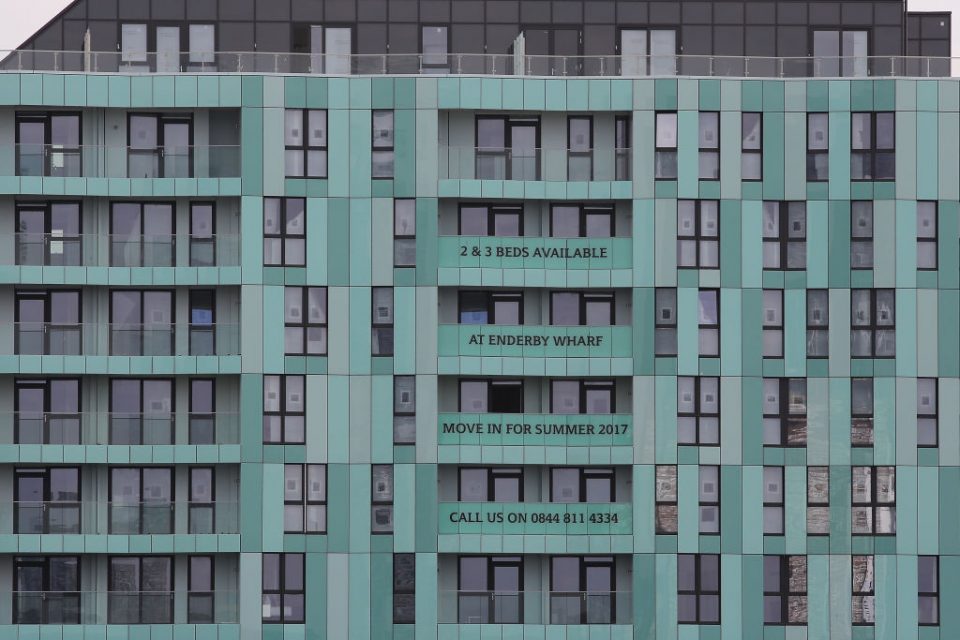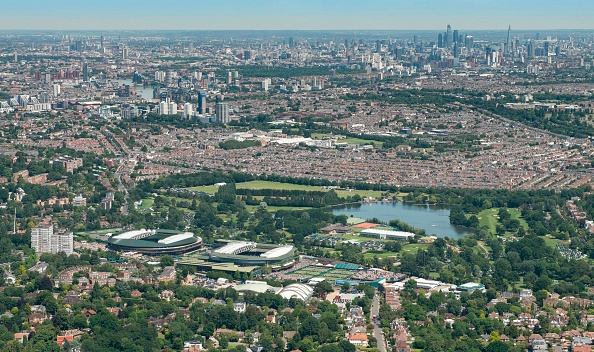London house prices suffer worst plunge in 10 years

London house prices suffered a staggering 4.4 per cent annual drop in May, their worst annual drop since the financial crisis, public data revealed today.
While UK house prices rose 1.2 per cent compared to May 2018, London house prices sank, the Office for National Statistics (ONS) revealed.
Read more: UK house prices slip for the first time in 2019, says Rightmove
Homes in the capital also fell on a monthly basis, dropping 2.5 per cent from April to May to leave the average London house price at £457,471.
The 4.4 per cent fall was the worst annual decline London house prices have seen since August 2009 at the height of the financial crisis.
Meanwhile UK house prices rose a marginal 0.1 per cent month to month to see an average value of £245,817.
Head of inflation at the ONS, Mike Hardie, said: “Annual house price growth remained slow but was once again strong in the North West and Wales. However, London experienced its biggest annual fall since August 2009.”
Northern Ireland, with a 3.5 per cent annual growth rate, and Wales, which saw house prices grow three per cent year on year, were the best performing areas.
The ONS added: “Over the past three years, there has been a general slowdown in UK house price growth, driven mainly by a slowdown in the south and east of England.”
South east house prices actually grew 0.6 per cent year on year in May, but homes in the north east also took a hit, declining 0.4 per cent.
London takes Brexit and stamp duty hit
Jamie Durham, an economist at PwC, said the capital is weighing down average UK house prices.
“A number of factors may have contributed to this fall in the growth rate,” he said. “The capital and the surrounding regions are already the most unaffordable in the country. Continued Brexit uncertainty and stamp duty changes in 2016 are also likely to be putting downward pressure on prices.”
Richard Donnell, research and insight director at Zoopla, added that London house prices’ growth rate will “moderate” until 2020.
“Average residential values in London are bottoming out for now and we predict sales volumes will slowly start to grow across late 2019 and market fluidity will gradually return,” he said.
“There are signs that housing market activity may have got a little help from the avoidance of a disruptive Brexit at the end of March, but the overall benefit looks to have been limited,” added Howard Archer, chief economic adviser to the EY Item Club.
“Improved consumer purchasing power and robust employment growth has also recently been helpful for the housing market but latest developments have been somewhat mixed.”
PwC predicts UK house prices will grow just over one per cent in 2019, while EY pins it at around 1.5 per cent.
“We forecast average house price growth in the UK of just over 1% in 2019.
London new build property prices fall

The value of new build homes in London fell 2.3 per cent year on year in March, and has dropped 1.8 per cent since February.
Their average value has fallen to £478,374.
Meanwhile experts warned that London continues to come under pressure from economic uncertainty over a no-deal Brexit.
Sterling fell to a two-year low yesterday as markets bet on the likelihood of such a scenario playing out.
Jonathan Harris, director of mortgage broker Anderson Harris, added that London house prices are still too high for buyers in the capital.
London house prices remain beyond buyers’ reach

“Affordability is still an issue for those buying in the capital and south east as prices remain relatively high compared to incomes,” he said.
“Mortgage rates remain low and continue to support transactions. Remortgaging remains strong as many people stay and improve rather than footing the considerable bill for a move to another address.”
Gareth Lewis, commercial director of property lender MT Finance, said price rises will only materialise when sellers are confident enough to put their homes on the market.
“While transactions are at a subdued level, we won’t get that growth stimulus,” he added.
Could UK house prices benefit from a cut in stamp duty?
“We are unlikely to see any significant change to property prices unless the new prime minister makes a significant change to stamp duty, which is a big blocker to those buying second homes or buy-to-lets,” Lewis also said.
Boris Johnson, the Tory leadership race favourite, has pledged to cut stamp duty in a bid to bolster the UK economy in the event of a no-deal Brexit.
Jeremy Leaf, north London estate agent and a former Rics residential chairman, said the May data from HM Land Registry does not reflect more recent improvements in the market – particularly in buyer enquiries.
Read more: UK house prices 2019: What will happen after Brexit?
“What these figures do highlight, which has not changed, is the reverse north/south divide that we had previously grown accustomed to,” he added.
“The more affordable areas of the north leading the way ahead of London and the south east where prices rose the furthest and the fastest in the past.”